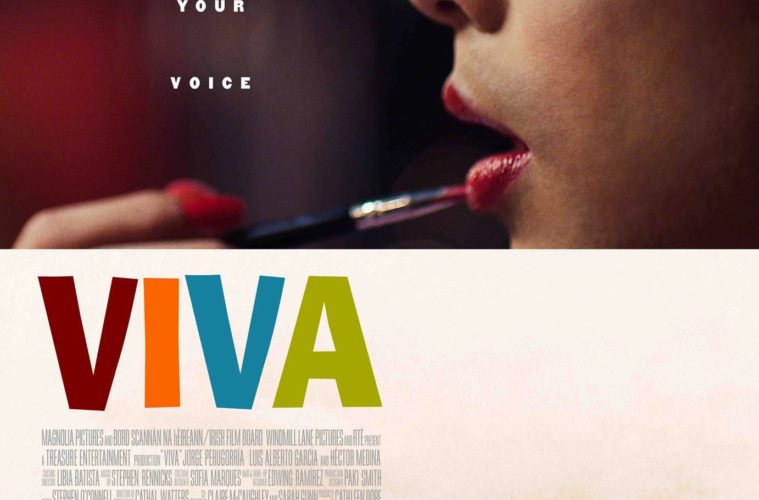Transporting us to a richly detailed Cuba, Viva tells the story of Jesus (Héctor Medina), a meek hairdresser whose clients include drag queens at a local Havana nightclub and elderly women who don’t have enough to pay him. With his mother having passed away and his estranged father in prison, he gets by on his own, yet is struggling to break out of his shell and genuinely express himself. While this story’s structure is certainly one we’ve witnessed before, Irish director Paddy Breathnach brings an emotional authenticity through a compassionate touch.
Jesus’ closest friends are the locals that attract tourists and a neighborhood “whore” — as one of his clients calls her — who takes advantage of his local dingy apartment, complete with a tattered mattress. One evening, when she leaves behind her lipstick, Jesus applies it; with a few glances into the mirror, his newfound dreams of participating in the local drag show emerge. An avenue for Jesus’ emotional breakthrough comes through his exuberant mentor, Mama (Luis Alberto García), who manages (and leads) drag performers at the nightclub. After an unexpected audition, he offers the timid Jesus a chance to perform on stage, leading to a wooden, buttoned-up performance, but one that doesn’t deter him from improving.

This set-up could easily parlay into the tried-and-true story of the road to self-empowerment, but the story soon takes a drastic shift when Jesus’ aggressive father, Angel (Jorge Perugorría), a former boxing star, gets out of prison and supplants himself into his son’s life. After a violent initial encounter, the two men, coupled with warring ideologies, slowly begin to find some common ground. Through this tale of redemption and reconciliation, Medina, with palpable brilliance, charts the emotional arc of his character, a gradual rise in confidence and the ability to speak out for what he desires.
Angel, perpetually drunk and outright dismissive, believes it’s his duty to return as a father figure. In one heartbreaking sequence, he returns to the ring to throw out training advice, only to be utterly ignored as his son peers on. This element of loneliness is conveyed in much of the cinematography from Cathal Watters, where characters are depicted from a distance, each a small piece of Havana’s intricately dilapidated landscape. With a docudrama approach capturing moments of reflective tranquility next to the beach or on a rooftop, Viva feels deeply rooted in its location.

While Mark O’Halloran‘s script rarely rises above conventions and Breathnach’s host of supporting characters never feel as fully formed as his lead, the filmmakers do successfully manifest an understated examination of Cuba’s economic landscape. We’re never getting a glimpse into the hotel-laden tourism side, and are instead invited into the lower class where one up-and-coming boxer’s biggest dream is having the chance to make it in Miami. Meanwhile, Jesus is forced to turn tricks and, even further, steal his client’s money in order to provide for his father, a man who despises his drag-queen dreams.
Stephen Rennicks‘ light score can often feel a touch too maudlin, but it is the expressive nightclub sequences where the film is at its harmoniously passionate. Each time Jesus takes the stage, no subtitles are necessary to convey his evolution and growth in spirit and body. “All my life I’ve been made to feel sorry for who I am,” Jesus says to his father. By the predictable but nonetheless moving finale, his identity of apologizing through body language and lack of expression is unequivocally no more. Executive produced by Benicio Del Toro and Ireland’s shortlisted entry for the Oscar, Viva has the pedigree to connect with its audience as an effective crowd-pleaser, even if it doesn’t saying anything remarkably new about finding one’s identity.
Viva screens at the 2016 Sundance Film Festival and opens on April 29th.


